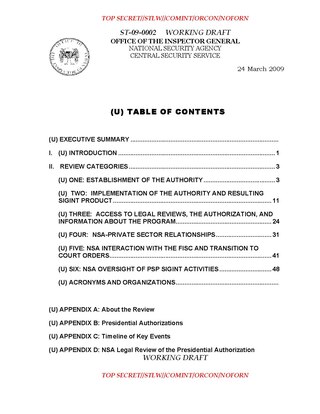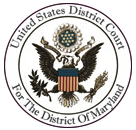
The National Security Agency (NSA) is an intelligence agency of the United States Department of Defense, under the authority of the Director of National Intelligence (DNI). The NSA is responsible for global monitoring, collection, and processing of information and data for global intelligence and counterintelligence purposes, specializing in a discipline known as signals intelligence (SIGINT). The NSA is also tasked with the protection of U.S. communications networks and information systems. The NSA relies on a variety of measures to accomplish its mission, the majority of which are clandestine. The NSA has roughly 32,000 employees.

MAINWAY is a database maintained by the United States' National Security Agency (NSA) containing metadata for hundreds of billions of telephone calls made through the largest telephone carriers in the United States, including AT&T, Verizon, and T-Mobile.
Smith v. Maryland, 442 U.S. 735 (1979), was a Supreme Court case holding that the installation and use of a pen register by the police to obtain information on a suspect's telephone calls was not a "search" within the meaning of the Fourth Amendment to the United States Constitution, and hence no search warrant was required. In the majority opinion, Justice Harry Blackmun rejected the idea that the installation and use of a pen register constitutes a violation of the suspect's reasonable expectation of privacy since the telephone numbers would be available to and recorded by the phone company anyway.

"Stellar Wind" was the code name of a warrantless surveillance program begun under the George W. Bush administration's President's Surveillance Program (PSP). The National Security Agency (NSA) program was approved by President Bush shortly after the September 11, 2001 attacks and was revealed by Thomas Tamm to The New York Times in 2004. Stellar Wind was a prelude to new legal structures that allowed President Bush and President Barack Obama to reproduce each of those programs and expand their reach.

The Utah Data Center (UDC), also known as the Intelligence Community Comprehensive National Cybersecurity Initiative Data Center, is a data storage facility for the United States Intelligence Community that is designed to store data estimated to be on the order of exabytes or larger. Its purpose is to support the Comprehensive National Cybersecurity Initiative (CNCI), though its precise mission is classified. The National Security Agency (NSA) leads operations at the facility as the executive agent for the Director of National Intelligence. It is located at Camp Williams near Bluffdale, Utah, between Utah Lake and Great Salt Lake and was completed in May 2014 at a cost of $1.5 billion.

Jewel v. National Security Agency, 673 F.3d 902, was a class action lawsuit argued before the District Court for the Northern District of California and the Court of Appeals for the Ninth Circuit, filed by Electronic Frontier Foundation (EFF) on behalf of American citizens who believed that they had been surveilled by the National Security Agency (NSA) without a warrant. The EFF alleged that the NSA's surveillance program was an "illegal and unconstitutional program of dragnet communications surveillance" and claimed violations of the Fourth Amendment.

PRISM is a code name for a program under which the United States National Security Agency (NSA) collects internet communications from various U.S. internet companies. The program is also known by the SIGAD US-984XN. PRISM collects stored internet communications based on demands made to internet companies such as Google LLC and Apple under Section 702 of the FISA Amendments Act of 2008 to turn over any data that match court-approved search terms. Among other things, the NSA can use these PRISM requests to target communications that were encrypted when they traveled across the internet backbone, to focus on stored data that telecommunication filtering systems discarded earlier, and to get data that is easier to handle.

Edward Joseph Snowden is an American-Russian former NSA intelligence contractor and whistleblower who leaked classified documents revealing the existence of global surveillance programs. He became a naturalized Russian citizen in 2022.

The practice of mass surveillance in the United States dates back to wartime monitoring and censorship of international communications from, to, or which passed through the United States. After the First and Second World Wars, mass surveillance continued throughout the Cold War period, via programs such as the Black Chamber and Project SHAMROCK. The formation and growth of federal law-enforcement and intelligence agencies such as the FBI, CIA, and NSA institutionalized surveillance used to also silence political dissent, as evidenced by COINTELPRO projects which targeted various organizations and individuals. During the Civil Rights Movement era, many individuals put under surveillance orders were first labelled as integrationists, then deemed subversive, and sometimes suspected to be supportive of the communist model of the United States' rival at the time, the Soviet Union. Other targeted individuals and groups included Native American activists, African American and Chicano liberation movement activists, and anti-war protesters.

During the 2010s, international media reports revealed new operational details about the Anglophone cryptographic agencies' global surveillance of both foreign and domestic nationals. The reports mostly relate to top secret documents leaked by ex-NSA contractor Edward Snowden. The documents consist of intelligence files relating to the U.S. and other Five Eyes countries. In June 2013, the first of Snowden's documents were published, with further selected documents released to various news outlets through the year.

The global surveillance disclosure released to media by Edward Snowden has caused tension in the bilateral relations of the United States with several of its allies and economic partners as well as in its relationship with the European Union. In August 2013, U.S. President Barack Obama announced the creation of "a review group on intelligence and communications technologies" that would brief and later report to him. In December, the task force issued 46 recommendations that, if adopted, would subject the National Security Agency (NSA) to additional scrutiny by the courts, Congress, and the president, and would strip the NSA of the authority to infiltrate American computer systems using "backdoors" in hardware or software. Geoffrey R. Stone, a White House panel member, said there was no evidence that the bulk collection of phone data had stopped any terror attacks.
This is a category of disclosures related to global surveillance.

Global mass surveillance can be defined as the mass surveillance of entire populations across national borders.

Klayman v. Obama, 957 F.Supp.2d 1, was a decision by the United States District Court for District of Columbia finding that the National Security Agency's (NSA) bulk phone metadata collection program was unconstitutional under the Fourth Amendment. The ruling was later overturned on jurisdictional grounds, leaving the constitutional implications of NSA surveillance unaddressed.

Former U.S. President Barack Obama favored some levels of mass surveillance. He has received some widespread criticism from detractors as a result. Due to his support of certain government surveillance, some critics have said his support violated acceptable privacy rights, while others dispute or attempt to provide justification for the expansion of surveillance initiatives under his administration.

American Civil Liberties Union v. Clapper, 785 F.3d 787, was a lawsuit by the American Civil Liberties Union (ACLU) and its affiliate, the New York Civil Liberties Union, against the United States federal government as represented by then-Director of National Intelligence James Clapper. The ACLU challenged the legality and constitutionality of the National Security Agency's (NSA) bulk phone metadata collection program.
The Privacy and Civil Liberties Oversight Board report on mass surveillance was issued in January 2014 in light of the global surveillance disclosures of 2013, recommending the US end bulk data collection.

Litigation over global surveillance has occurred in multiple jurisdictions since the global surveillance disclosures of 2013.

Wikimedia Foundation, et al. v. National Security Agency, et al. was a lawsuit filed by the American Civil Liberties Union (ACLU) on behalf of the Wikimedia Foundation and several other organizations against the National Security Agency (NSA), the United States Department of Justice (DOJ), and other named individuals, alleging mass surveillance of Wikipedia users carried out by the NSA. The suit claims the surveillance system, which NSA calls "Upstream", breaches the First Amendment to the United States Constitution, which protects freedom of speech, and the Fourth Amendment to the United States Constitution, which prohibits unreasonable searches and seizures.
Targeted surveillance is a form of surveillance, such as wiretapping, that is directed towards specific persons of interest, and is distinguishable from mass surveillance. Both untargeted and targeted surveillance is routinely accused of treating innocent people as suspects in ways that are unfair, of violating human rights, international treaties and conventions as well as national laws, and of failing to pursue security effectively.












